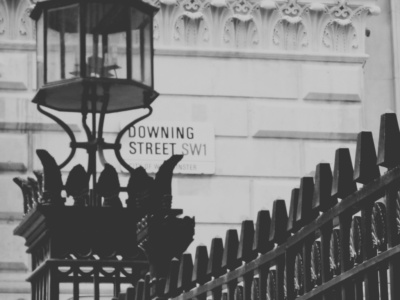May saw a slight slowing in the rate of annual house price growth to 11.2%, from 12.1% in April.
Prices rose by 0.9% month-on-month, after taking account of seasonal effects – the tenth successive monthly increase, which kept annual price growth in double digits.
Despite growing headwinds from the squeeze on household budgets due to high inflation and a steady increase in borrowing costs, the housing market has retained a surprising amount of momentum.
Demand is being supported by strong labour market conditions, where the unemployment rate has fallen towards 50-year lows, and with the number of job vacancies at a record high.
At the same time, the stock of homes on the market has remained low, keeping upward pressure on house prices.
We continue to expect the housing market to slow as the year progresses.
Household finances are likely to remain under pressure with inflation set to reach double digits in the coming quarters if global energy prices remain high.
Measures of consumer confidence have already fallen towards record lows.
Moreover, the Bank of England is widely expected to raise interest rates further, which will also exert a cooling impact on the market if this feeds through to mortgage rates.
| Headlines | May-22 | Apr-22 |
|---|---|---|
| Monthly Index* | 536.3 | 531.8 |
| Monthly Change* | 0.9% | 0.4% |
| Annual Change | 11.2% | 12.1% |
| Average Price(not seasonally adjusted) | £269,914 | £267,620 |
2022 marks the Queen’s Platinum Jubilee and it is also 70 years since Nationwide produced their first house price data, commented Robert Gardner, Nationwide’s Chief Economist.
The housing market was very different back in 1952, with just 32% of households owning their own home, compared to 65% today.
The UK average house price in 1952 was £1,891 – which is around £62,000 in today’s money.
This means that current average house prices are 4.3 times higher than 1952 levels in real terms (adjusting for retail price inflation)
The recent Nationwide housing market survey revealed that, as well as more people looking to move, over half of those surveyed (54%) are considering enhancing their home.
The most popular option for those looking to make improvements was to add or maximise space, with more than a third (37%) citing this as a motivating factor.
Interestingly, 29% of those surveyed wanted to improve energy efficiency or reduce the carbon footprint of their home, Gardener continued.
This consideration has become increasingly relevant in light of surging energy costs, though decarbonising and adapting the housing stock is also important if the UK is to meet its 2050 emissions target.
Jeremy Leaf, north London estate agent and a former RICS residential chairman, comments:
“Market activity is now being determined more by shortage of stock than softening demand, which in turn has been prompted by the rising cost of living and interest rates.
As a result, sellers are seeing prices rising more slowly or asking levels reduced in some cases as supply and demand move more into line.
Previously, buyers wanted to be first in the queue for new homes coming on the market but some are holding back and taking their time to consider their options.”
Alex Lyle, director of Richmond estate agency Antony Roberts, comments:
“It is getting more difficult to call the market – on the ground, it feels as though activity has slowed a little over the past few weeks, due most likely to a lack of stock, combined with various bank holidays and half term rather than rising interest rates and inflation.
The imbalance between supply and demand continues to fuel house price growth.
Such little stock is coming onto the market, while buyer enthusiasm for a competitive-bidding bun fight appears to be waning.
Some down-valuations are also beginning to creep in, which we haven’t seen for quite a while.”
Mark Harris, chief executive of mortgage broker SPF Private Clients, commented:
“There are still signs of strong activity in the market even though some of the heat has come out of it, and mortgage brokers remain exceptionally busy as borrowers worry about rising rates.
Lenders continue to pull products and reprice at short notice in order to protect service levels.
Mortgage pricing by smaller lenders and building societies is not as volatile as the bigger lenders as the ‘big six’ try to avoid being top of the ‘best buy’ tables due to the volume of business this attracts as borrowers scramble for the lowest deals.
With rising inflation and living costs set to be a feature for a while, borrowers continue to favour longer-term fixes in order to protect themselves as much as possible.
Five-year products in particular are flying off the shelves, partly because they are so favourably priced compared with their two-year equivalents.”
Anna Clare Harper, director of real estate technology platform IMMO, comments:
“May saw the tenth successive monthly increase, keeping house price growth in double digits.
Many will be wondering why house prices remain so buoyant, in the context of post-Covid, post-Brexit and mid-Ukraine turmoil.
Much like for the wider economy, house price inflation is being driven by shortages of supply.
This shortage relates to housing in general, and to quality housing that people can afford, in the places they want and need to live, in particular.
Suitable, affordable housing shortages are being made worse by planning backlogs from lockdown alongside labour and material shortages and inflationary pressures, alongside the fact that many new build schemes are unaffordable to locals.”
Director of Henry Dannell, Geoff Garrett, commented:
“We’ve now seen buyer activity in the form of mortgage approvals return to pre-pandemic levels, but despite this, available stock remains low in the current market and so it’s unlikely to bring about any reduction in house prices in the short to medium term.”
Director of Benham and Reeves, Marc von Grundherr, commented:
“While the wider UK economy may be wobbling like a homemade Jubilee trifle, the housing market is standing firm, with property values continuing to climb.
This suggests that buyers are making the most of what remain relatively favourable market conditions, despite a string of successive base rate increases, no doubt in anticipation of further rises to come this year.”
James Forrester, Managing Director of Barrows and Forrester, commented:
“Despite rising inflation, the cost of living crisis and increasing interest rates, the UK property market remains defiant and it’s fair to say that the pandemic property market boom has now become the post-pandemic norm, with property values standing steadfast in the face of wider economic instability.
As a result, many homeowners are deciding to improve rather than move in order to boost the size of their homes to accommodate their lifestyle needs.
This is only going to limit the already inadequate level of housing stock available to buyers on the current market, which will ensure that, even with a reduction in buyer demand, house prices remain buoyant for the foreseeable future.”
Founder and CEO of GetAgent.co.uk, Colby Short, commented:
“Those old enough to remember the Queen’s coronation probably won’t want to admit it at this stage, but if there’s one thing that has been as remarkable as Her Majesty’s reign in the last 70 years, it’s the performance of the UK property market.
It goes to show that despite its ups and downs, there really is no safer investment than bricks and mortar when it comes to long term price appreciation.
With house prices hitting record highs in recent months, the mind boggles as to where we might find ourselves in another 70 years.”
Tomer Aboody, director of property lender MT Finance, commented:
“Although there’s a definite squeeze on people’s purses due to the higher cost of living and inflation across the board, we are still seeing a strong housing market with higher prices supported by low interest rates, even though these are rising, and strong employment.
With homeowners looking to improve their homes, disposal income is being used intelligently to add value and improve quality of life.
This will be something to watch closely in coming months with higher costs of such works and inflation hitting homeowner budgets.
This surely will have a knock-on effect on the out-of-control costs being charged by contractors.”






















Comments